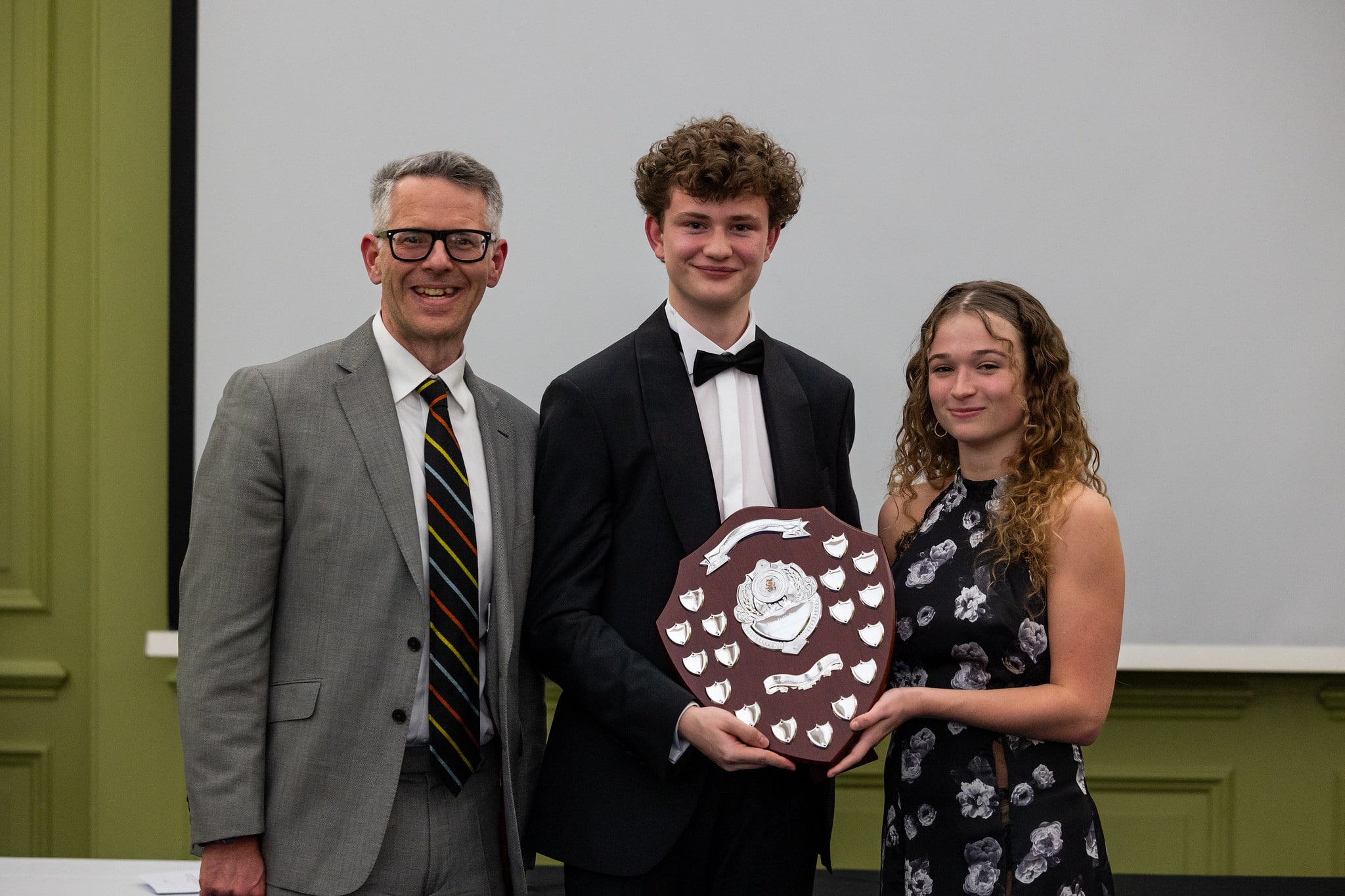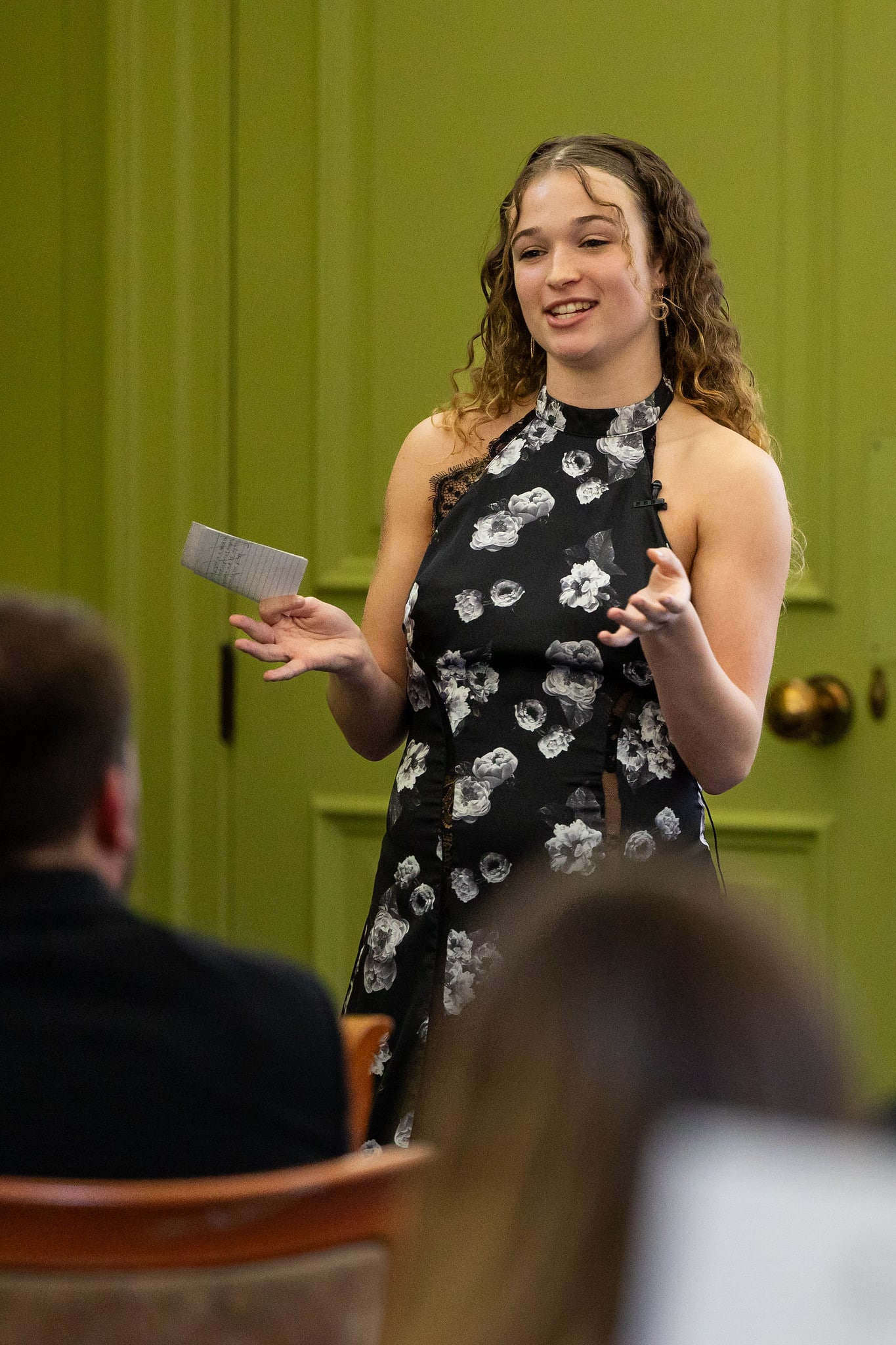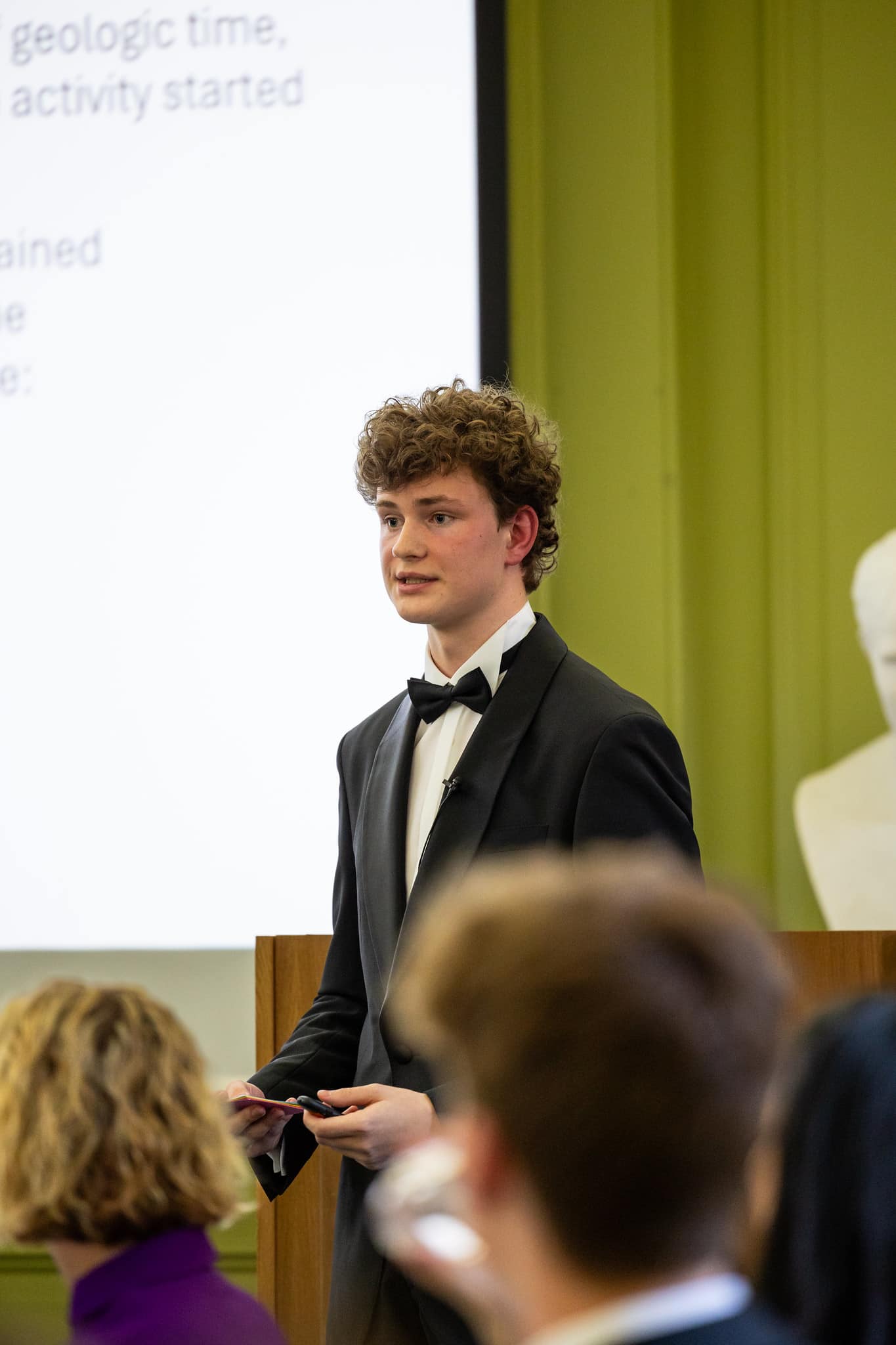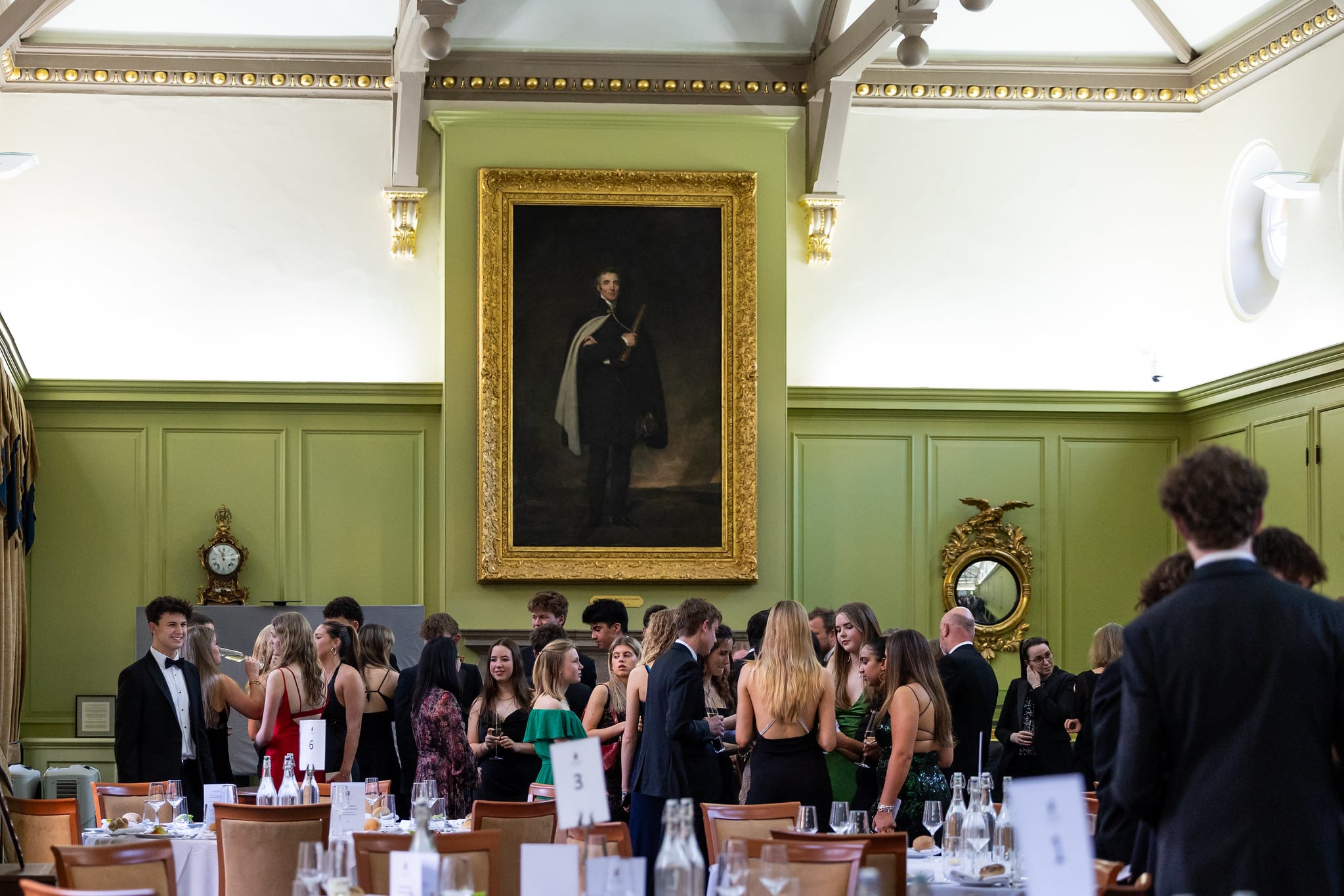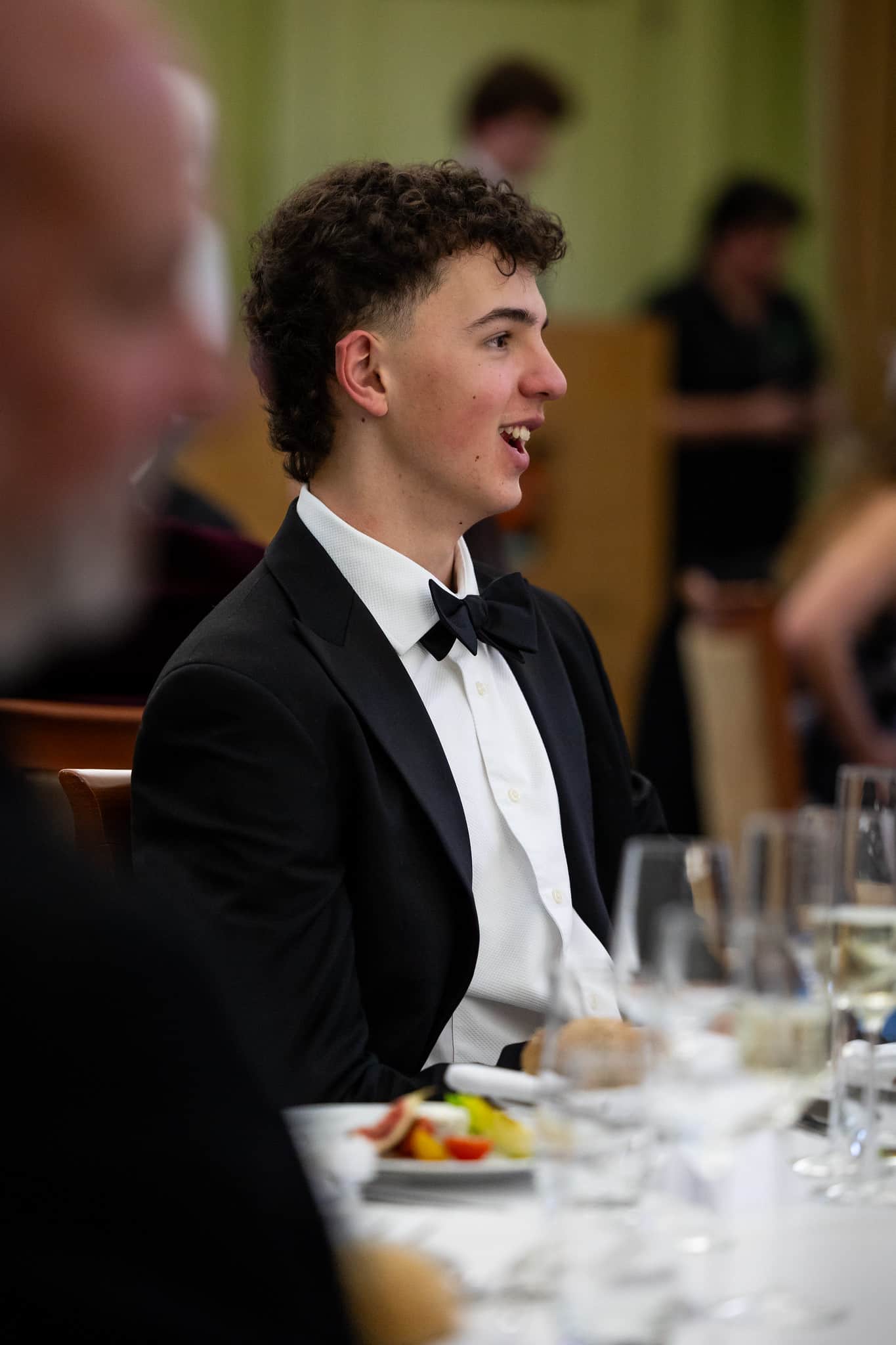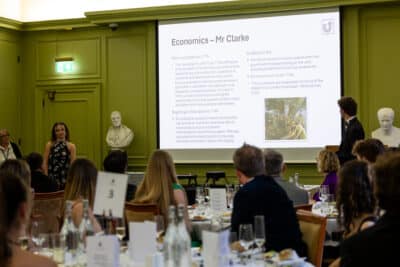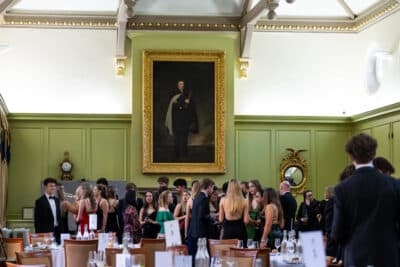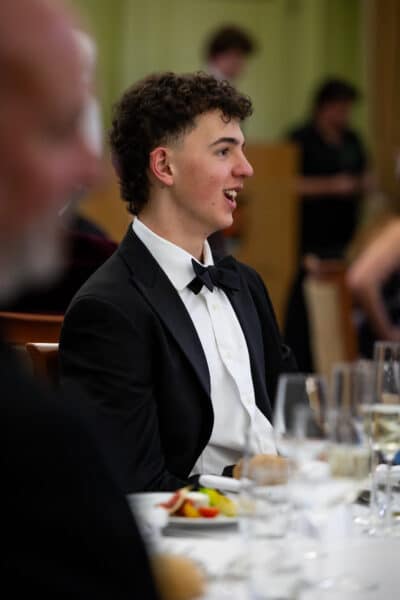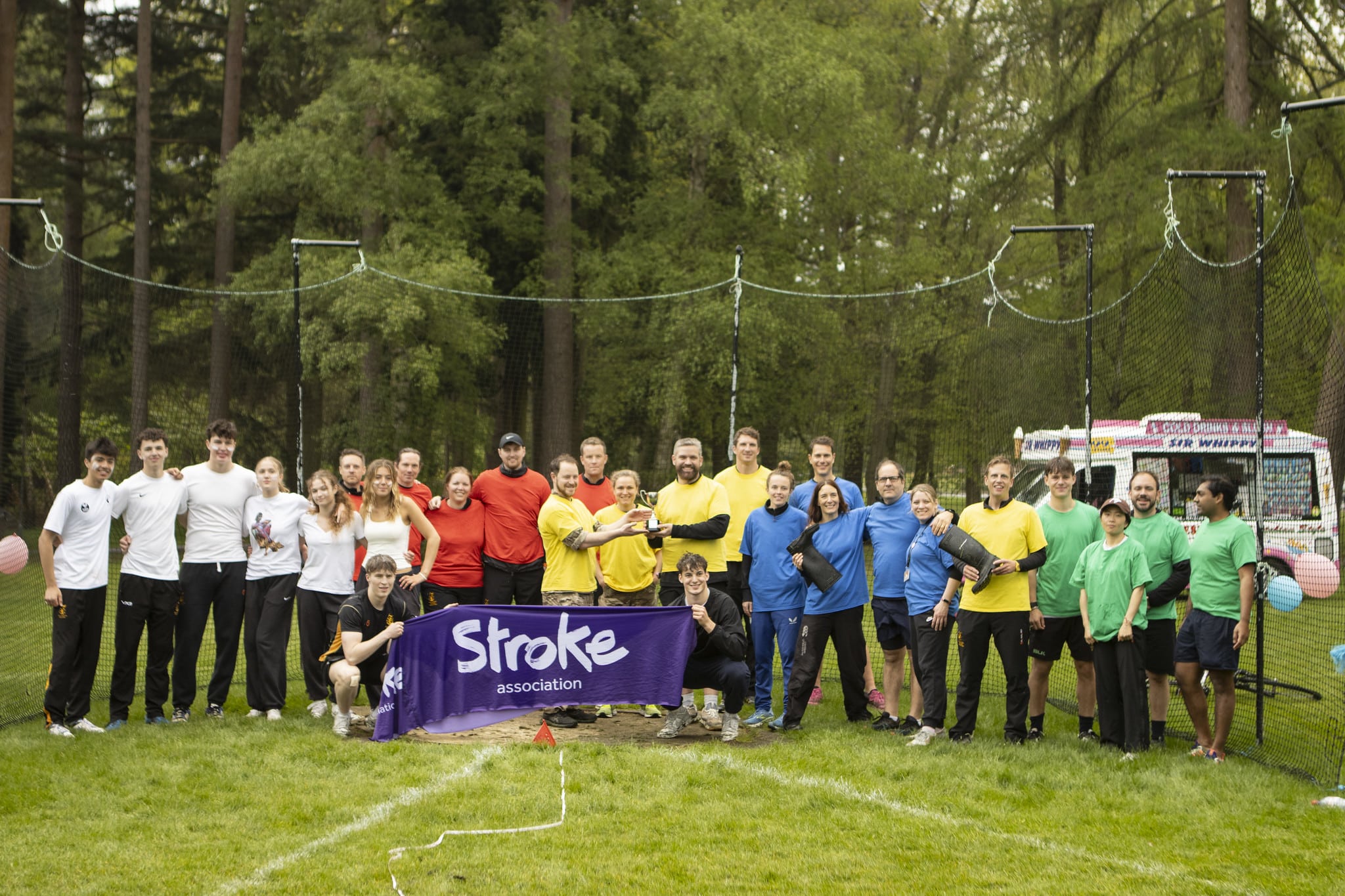
In the Michaelmas term, our Academic Scholars met to reflect on their summer reading – Underland and Otherlands – reading and discussing specific excerpts from these works together. These provided a stimulus for the series of five short courses the scholars completed, all considering the term ‘Anthropocene’ from different academic perspectives. These courses were run by Dr Sagers, Dr Cho, Mr Evans, Ms Taylor, and Mrs Patterson. One course focused on Anthropocene Art: how can we convey the difficulties of this time period through artistic means and whether culture is its own fossil record. In another course, they explored the concept of ‘Future Fossils’: what fossils will we leave behind? What stories might we tell about humanity in the far future? What account might survive of us?
In Lent, the scholars worked in pairs to develop a research paper on a topic related to the Anthropocene. Papers were judged on the basis of their interdisciplinarity approach, depth of research, originality, and presentation style.
Over a wonderful black-tie formal dinner, the four pairs of finalists presented a summary of their findings. Anoushka H and Friedrich D effectively crowdsourced by interviewing different members of staff to understand when they believe capitalism took hold, indicating ‘The Beginning of the Anthropocene Era’. Isby C and Anaya K provided a carefully curated summary of their debate on ‘Has innate human selfish behaviour contributed to Earth’s degradation?’, which they had recorded on DukeBox. Rosie W and Flo H explored the intersection of Environmental Challenges and Gastronomic Processes. Sam S and James A created a mathematical model to suggest the most effective policy implementations to reduce the impact of climate change. OW Professor Klaus Dodds delivered the keynote speech, sharing his recent experience delivering a paper to the European Parliament, and awarded the Klaus Dodds Prize for Academic Extension to Anoushka and Friedrich, who will now deliver their paper at the Youth Forum in Switzerland in January.






